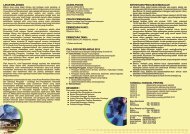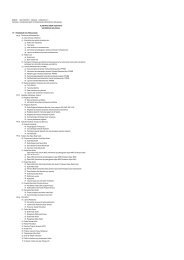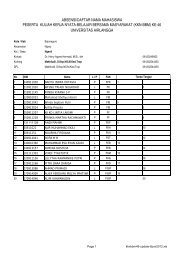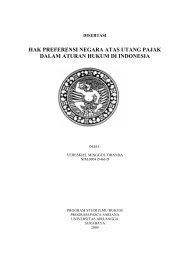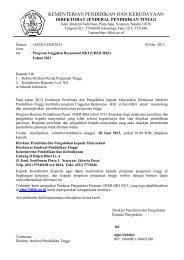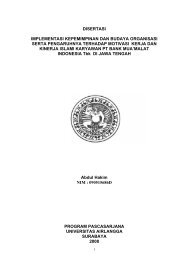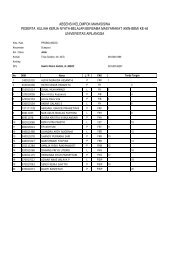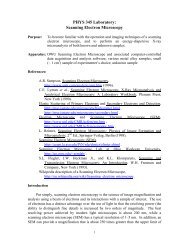Nietzsche's Naturalistic Ethics - UNAIR | E-Book Collection
Nietzsche's Naturalistic Ethics - UNAIR | E-Book Collection
Nietzsche's Naturalistic Ethics - UNAIR | E-Book Collection
You also want an ePaper? Increase the reach of your titles
YUMPU automatically turns print PDFs into web optimized ePapers that Google loves.
4.3 Let us develop a Nietzschean response to this Kantian picture, mindful that our goal is to respondto the objection from the irrelevance of third-person inquiries and to devise a more generalNietzschean stance viz-a-viz Korsgaard’s Kant. According to such a response, the Kantian pictureis erroneous in two ways: First, it endorses a wrong view of the mind by including the idea of aninner chooser, reason, that decides which desires are to be incorporated into maxims and thus to acton. It is illusionary to think that the mind can consider desires from a standpoint of deliberativedetachment. Second, even if the Kantian picture of the mind is granted, there is a flaw in thederivation of the commandment that one should act in such a way that no rational being is usedmerely as a means. The first move is thoroughly Nietzschean, whereas the second draws onphilosophical folklore surrounding the Categorical Imperative, which, however, can be easilyintegrated into the Nietzschean framework. The first error, then, is this. The Kantian concern thatNietzsche’s account ignores the first-person perspective rests on a flawed view of the mind and thusof agency. 27 A description of how Nietzsche views the functioning of the mind is given in GS 333:Since only the last scenes of reconciliation and the final accounting at the end of this long process rise to ourconsciousness, we suppose that intelligere must be something conciliatory, just, and good – something thatstands essentially opposed to the instincts, while it is actually nothing but a certain behavior of the instinctstoward on another. For the longest time, conscious thought was considered thought itself. Only now does thetruth dawn on us that by far the greats part of our spirit’s activity remains unconscious and unfelt. (...) Consciousthinking, especially that of the philosopher, is the least vigorous and therefore also the relatively mildest andcalmest form of thinking; and thus precisely philosophers are most apt to be led astray about the nature ofknowledge.As Thiele (1990) says, the “Platonic opposition between reason and passion is fractured into the27 Cf. Parkes (1994), Thiele 1990, pp 51 ff, and Richardson (1996), chapter 1.4, for thedrive constitution of the human mind to be discussed in this paragraph.28




